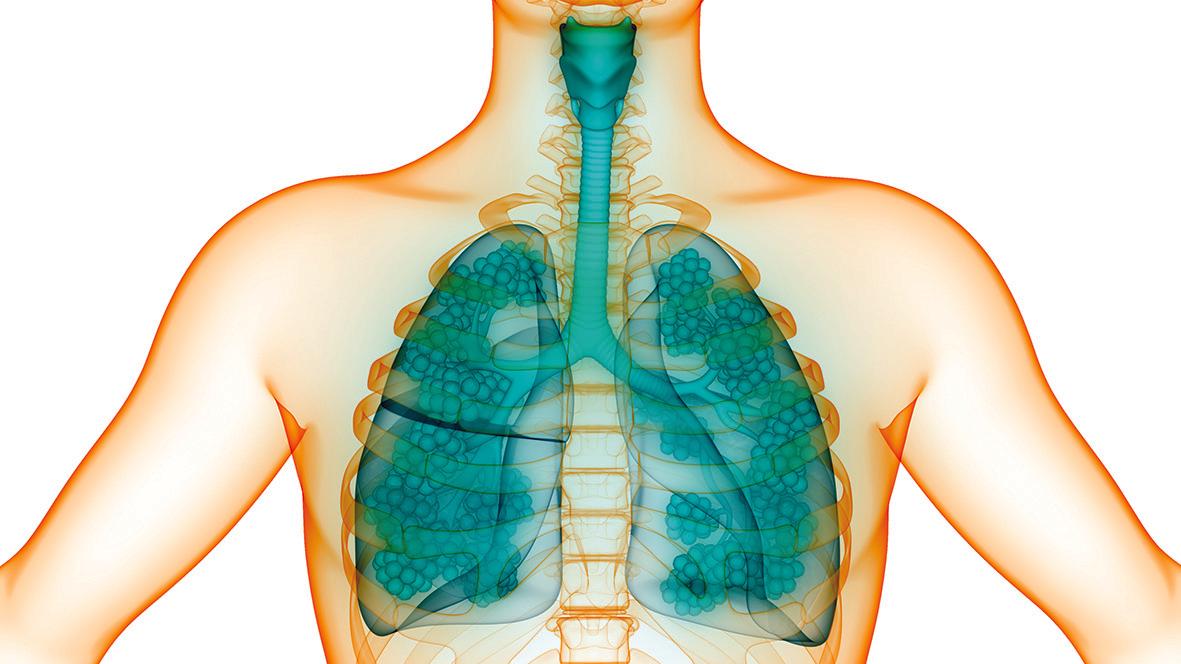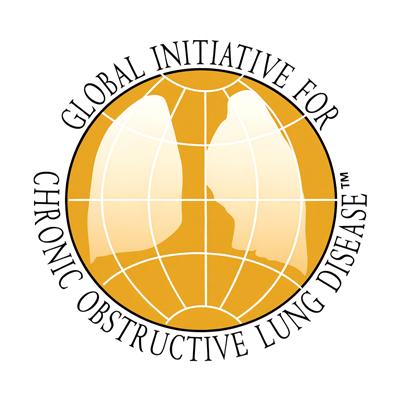
New advice on COPD and comorbidities
Mandy Galloway
Mandy Galloway
Editor
Practice Nurse 2024;54(6):10-11
The latest update to the influential GOLD report on COPD reinforces existing recommendations on pharmacological management and provides detailed advice on the increased risk of co-morbid cardiovascular disease in people with COPD
People with chronic obstructive pulmonary disease (COPD) often have other comorbidities, either because they have shared risk factors or because one disease increases or compounds the risk of others. However, the symptoms of comorbid diseases can often be overlooked or wrongly attributed to the patient’s COPD.
It can also be difficult to diagnose comorbid diseases if the symptoms are similar to those caused by COPD – for example, breathlessness is common in both COPD and heart failure or lung cancer. And worsening of COPD during an exacerbation, for example, can also lead to deterioration in heart failure.
Conversely, COPD can adversely affect the outcomes of other diseases – e.g. patients undergoing cardiac surgery have greater morbidity and mortality if they also have COPD.
GOLD states: ‘Whether or not COPD and comorbid diseases are related, management of the COPD patient must include identification and management of its comorbidities, [in line with] the guidelines for each comorbidity.'
CARDIOVASCULAR DISEASE (CVD)
- COPD patients with no history of CVD have a 25% increase in the risk of major adverse cardiac events (MACE) including myocardial infarction, stroke or cardiovascular death.
- Heart failure can mimic or accompany COPD, and prevalence ranges from 20% to 70%
- Ischaemic heart disease (IHD) should be considered in all patients with COPD, and their CVD risk assessed and managed according to current guidelines, irrespective of the presence of COPD
- During and after exacerbations of COPD there is an increased risk of MACE
- Cardiac arrhythmias are common in COPD (and vice versa). Atrial fibrillation (AF) is common and associated with lower FEV1. The presence of AF should not alter the treatment of COPD. The safety profiles of long-acting beta agonists, anticholinergic drugs and ICS are acceptable, but caution should be exercised when using short-acting beta agonists or theophylline
- Pulmonary hypertension (PH) is common in patients with COPD (mild PH is estimated to occur in 25-30%) and is associated with increase healthcare use, hospitalisations and poor prognosis. Patients should be referred to a specialist for investigation and assessment to guide treatment decisions. Management should follow the 2022 European Society of Cardiology/European Respiratory Society guidelines.
- Peripheral arterial disease is commonly associated with atherosclerotic heart disease and may have a significant effect on physical function and quality of life in people with COPD
- Hypertension is probably the most frequent comorbidity in COPD and can affect prognosis. Blood pressure control should be optimised in people with COPD, following usual guidelines. There is no evidence that COPD should be treated differently in people with hypertension
LUNG CANCER
There is compelling evidence for the association between COPD and lung cancer, and the two diseases appear to share more than tobacco exposure as their common origin. The association between lung cancer and the degree of emphysema is stronger than with airflow obstruction.
The best preventive measure for both conditions is smoking prevention, and in smokers, smoking cessation.
VACCINATION FOR STABLE COPD
Flu vaccination can reduce serious illness, such as lower respiratory tract infections requiring hospitalisation, and death in people with COPD. High dose inactivated and adjuvant inactivated vaccines are recommended as the most effective options for older adults. An added benefit of flu vaccination repeated over many years is that it has been shown to decrease the risk of ischaemic heart disease in people with COPD, particularly the elderly. Annual vaccination against COVID-19 is also recommended for people with COPD, and has been shown to reduce the risk of infection requiring urgent care, hospitalisation and admission to ITU.
Pneumococcal vaccine is recommended for adults aged 65 years or older, or for those aged 19-64 years if they have an underlying medical condition such as COPD, if they have not been previously vaccinated or their vaccination history is unknown. Vaccination reduces the likelihood of an exacerbation.
Introduced in the UK this year, respiratory syncytial virus (RSV) vaccine should be offered to patients with COPD aged 60 years or over. A report from the UK showed that RSV was associated with 8.7% of outpatient-managed COPD exacerbations.
People with COPD are at increased risk of pertussis (whooping cough), and if they were not vaccinated as adolescents, they should be vaccinated now. Shingles vaccine should also be offered routinely.
People with COPD should receive all recommended vaccines in line with national guidelines:
- Influenza vaccination – annually
- COVID-19
- Pneumococcal vaccine – either PCV21 or PCV20
- RSV vaccination of people aged 60 years or over and/or with chronic heart or lung disease
- Pertussis (included in dTaP/dTPa) if not vaccinated in adolescence
- Shingles vaccination (if aged >50 years).
REFERENCE
Global Initiative for Chronic Obstructive Lung Disease. The 2025 GOLD report; 11 November 2024. https://goldcopd.org/2025-gold-report/
Related articles
View all Articles
